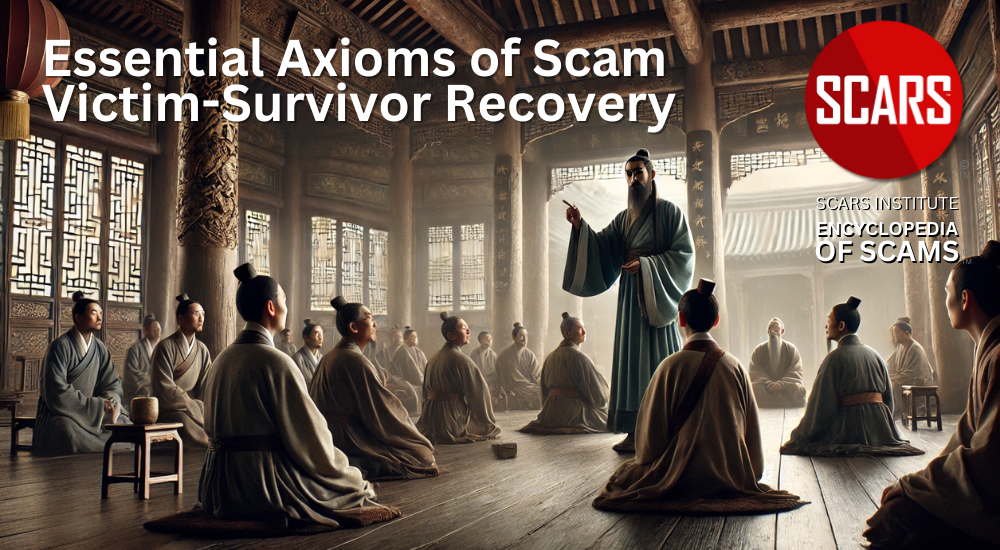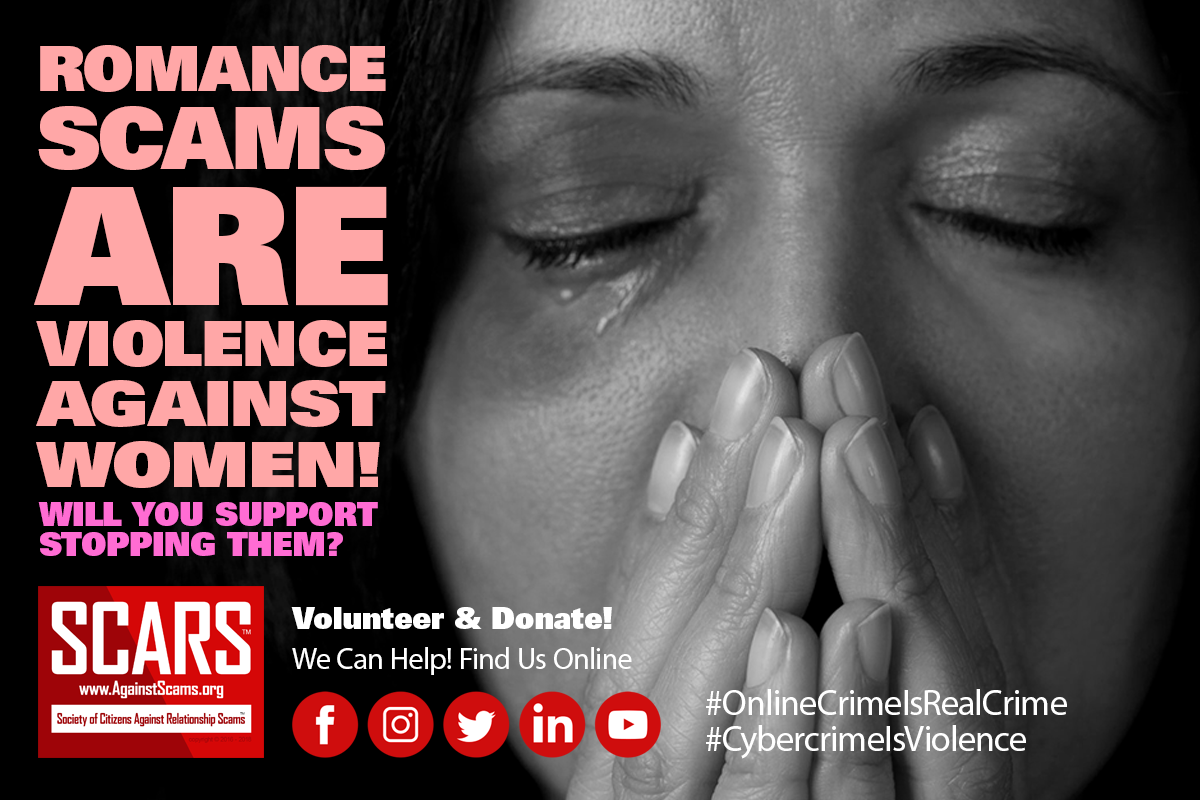
SCARS Institute’s Encyclopedia of Scams™ Published Continuously for 25 Years

THer Stolen Identity: Halsey
Do You Know Halsey? She Is A Victim Too!
She Is Frequently Used By Scammers To Defraud Women Scam Victims!
You Have Probably Seen Her Photos Before!
Her real name is Halsey and She is a Singer
Businessmen, soldiers, oil rig workers, doctors, and diplomats do not need your money! If anyone asks for money it is a scam and the photos are stolen!
Halsey Is AnotSher Scammers Choice Award Winner
Of course, you don’t really know Halsey, since these are stolen photos used by African Romance Scammers, but She is popular!
If you see Her photos on social media or on a dating site – guess what? She is being used by Online Fraudsters & Cybercriminals!
Remember Halsey’s face for the next time you see her!
Here is a gallery of Halsey’s photos we have found used by Romance Scammers:
Click On An Image To View – If the Gallery Does Not Display Refresh the Page
Do you have or have seen other photos of Halsey? Send them to us on our website www.Anyscam.com
WARNING:
- Do Not Contact Her – You Do Not Have A Relationship With Her!
- She Does Not Want to hear from Scam Victims Who Have Fallen in Love With Her Face!
- She is a Victim Also and Deserving of Her Privacy And Respect
- She Knows Her Identity Has Been Stolen and Used By Scammers
- If you attempt to track down the face in the photo and contact them that is cyberstalking and is a crime
- To learn how best to report these crimes visit reporting.AgainstScams.org
SCARS Scammer Preferencing Study
SCARS is conducting a long-term study of the ways that impersonation criminals preference the photos they select. It is important to understand why scammers choose the photos they do. Remember that these criminals select a limited number of images to be used in their impersonations and why they choose them can help both in training AI to recognize these choices and also alert victims about them when they see them in profiles and contacts online.
For example, we have learned that scammers are victims of their own cognitive biases just like their victims. They tend to select images that reflect what they believe will be disarming and trustworthy. Photos with animals, for example, trigger an amygdala hijack in their victims. Photos of people doing normal things tend to communicate that the people in those photos are normal and trustworthy. But those same biases in the criminals also lead them to select images that represent what they hope to accomplish, such as wealth, if you know what to look for.
Every stolen photo on this site is a part of this scholarly study and contributes to the volume of knowledge we obtain from them. To learn more about the current SCARS research visit study,AgainstScams.org To add photos that you have collected from these criminals to our work visit www.AnyScam.com
For more, see our SCARS Institute Statement on the Use and Display of Stolen Photos in Scam Awareness and Crime Prevention Efforts – 2024
-/ 30 /-
What do you think about this?
Please share your thoughts in a comment below!
LEAVE A COMMENT?
Recent Comments
On Other Articles
- Arwyn Lautenschlager on Love Bombing And How Romance Scam Victims Are Forced To Feel: “I was love bombed to the point that I would do just about anything for the scammer(s). I was told…” Feb 11, 14:24
- on Dani Daniels (Kira Lee Orsag): Another Scammer’s Favorite: “You provide a valuable service! I wish more people knew about it!” Feb 10, 15:05
- on Danielle Delaunay/Danielle Genevieve – Stolen Identity/Stolen Photos – Impersonation Victim UPDATED 2024: “We highly recommend that you simply turn away form the scam and scammers, and focus on the development of a…” Feb 4, 19:47
- on The Art Of Deception: The Fundamental Principals Of Successful Deceptions – 2024: “I experienced many of the deceptive tactics that romance scammers use. I was told various stories of hardship and why…” Feb 4, 15:27
- on Danielle Delaunay/Danielle Genevieve – Stolen Identity/Stolen Photos – Impersonation Victim UPDATED 2024: “Yes, I’m in that exact situation also. “Danielle” has seriously scammed me for 3 years now. “She” (he) doesn’t know…” Feb 4, 14:58
- on An Essay on Justice and Money Recovery – 2026: “you are so right I accidentally clicked on online justice I signed an agreement for 12k upfront but cd only…” Feb 3, 08:16
- on The SCARS Institute Top 50 Celebrity Impersonation Scams – 2025: “Quora has had visits from scammers pretending to be Keanu Reeves and Paul McCartney in 2025 and 2026.” Jan 27, 17:45
- on Scam Victims Should Limit Their Exposure To Scam News & Scammer Photos: “I used to look at scammers photos all the time; however, I don’t feel the need to do it anymore.…” Jan 26, 23:19
- on After A Scam, No One Can Tell You How You Will React: “This article was very informative, my scams happened 5 years ago; however, l do remember several of those emotions and/or…” Jan 23, 17:17
- on Situational Awareness and How Trauma Makes Scam Victims Less Safe – 2024: “I need to be more observant and I am practicing situational awareness. I’m saving this article to remind me of…” Jan 21, 22:55
ARTICLE META
Important Information for New Scam Victims
- Please visit www.ScamVictimsSupport.org – a SCARS Website for New Scam Victims & Sextortion Victims
- Enroll in FREE SCARS Scam Survivor’s School now at www.SCARSeducation.org
- Please visit www.ScamPsychology.org – to more fully understand the psychological concepts involved in scams and scam victim recovery
If you are looking for local trauma counselors please visit counseling.AgainstScams.org or join SCARS for our counseling/therapy benefit: membership.AgainstScams.org
If you need to speak with someone now, you can dial 988 or find phone numbers for crisis hotlines all around the world here: www.opencounseling.com/suicide-hotlines
A Note About Labeling!
We often use the term ‘scam victim’ in our articles, but this is a convenience to help those searching for information in search engines like Google. It is just a convenience and has no deeper meaning. If you have come through such an experience, YOU are a Survivor! It was not your fault. You are not alone! Axios!
A Question of Trust
At the SCARS Institute, we invite you to do your own research on the topics we speak about and publish, Our team investigates the subject being discussed, especially when it comes to understanding the scam victims-survivors experience. You can do Google searches but in many cases, you will have to wade through scientific papers and studies. However, remember that biases and perspectives matter and influence the outcome. Regardless, we encourage you to explore these topics as thoroughly as you can for your own awareness.
Statement About Victim Blaming
SCARS Institute articles examine different aspects of the scam victim experience, as well as those who may have been secondary victims. This work focuses on understanding victimization through the science of victimology, including common psychological and behavioral responses. The purpose is to help victims and survivors understand why these crimes occurred, reduce shame and self-blame, strengthen recovery programs and victim opportunities, and lower the risk of future victimization.
At times, these discussions may sound uncomfortable, overwhelming, or may be mistaken for blame. They are not. Scam victims are never blamed. Our goal is to explain the mechanisms of deception and the human responses that scammers exploit, and the processes that occur after the scam ends, so victims can better understand what happened to them and why it felt convincing at the time, and what the path looks like going forward.
Articles that address the psychology, neurology, physiology, and other characteristics of scams and the victim experience recognize that all people share cognitive and emotional traits that can be manipulated under the right conditions. These characteristics are not flaws. They are normal human functions that criminals deliberately exploit. Victims typically have little awareness of these mechanisms while a scam is unfolding and a very limited ability to control them. Awareness often comes only after the harm has occurred.
By explaining these processes, these articles help victims make sense of their experiences, understand common post-scam reactions, and identify ways to protect themselves moving forward. This knowledge supports recovery by replacing confusion and self-blame with clarity, context, and self-compassion.
Additional educational material on these topics is available at ScamPsychology.org – ScamsNOW.com and other SCARS Institute websites.
Psychology Disclaimer:
All articles about psychology and the human brain on this website are for information & education only
The information provided in this article is intended for educational and self-help purposes only and should not be construed as a substitute for professional therapy or counseling.
While any self-help techniques outlined herein may be beneficial for scam victims seeking to recover from their experience and move towards recovery, it is important to consult with a qualified mental health professional before initiating any course of action. Each individual’s experience and needs are unique, and what works for one person may not be suitable for another.
Additionally, any approach may not be appropriate for individuals with certain pre-existing mental health conditions or trauma histories. It is advisable to seek guidance from a licensed therapist or counselor who can provide personalized support, guidance, and treatment tailored to your specific needs.
If you are experiencing significant distress or emotional difficulties related to a scam or other traumatic event, please consult your doctor or mental health provider for appropriate care and support.
Also read our SCARS Institute Statement about Professional Care for Scam Victims – click here to go to our ScamsNOW.com website.























































![Amber Hahn - Impersonation Victim - Stolen Photos Used By Scammers - 2019 [Updated 2024] Amber Hahn Impersonation Victim Stolen Photos Used By Scammers Amber Hahn Impersonation Victim Stolen Photos Used By Scammers - 2024 - on the SCARS Institute RomanceScamsNOW.com - the Encyclopedia of Scams™](https://romancescamsnow.com/wp-content/uploads/2019/05/Amber-Hahn-Impersonation-Victim-Stolen-Photos-Used-By-Scammers.png)



















Thank you for your comment. You may receive an email to follow up. We never share your data with marketers.